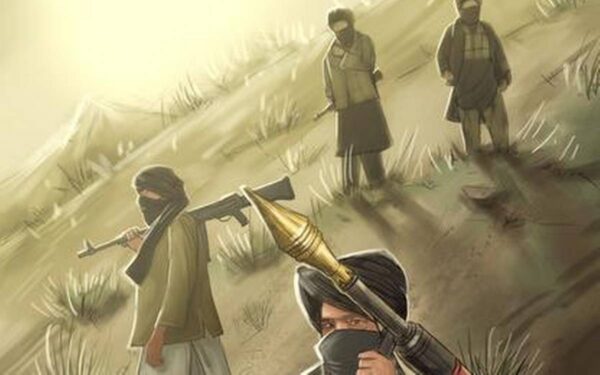
Resurgence of the Taliban in Afghanistan
YARDLEY, Pennsylvania — After 20 times, the longest war in American history eventually came to an end before this time under the direction of President Joe Biden. Still, numerous don’t consider the ending a palm since the rejuvenescence of the Taliban in Afghanistan is nearly erasing visible progress. Accordingly, the origins of this decades-long intervention are muddied or unknown to numerous who have lost sight of the conflict’s onsets back in late 2001.
How It All Began A Timeline of 2001
Just two days before al Qaeda struck the World Trade Center in New York City and the Pentagon in Washington,D.C., theanti-Taliban coalition leader, Ahmad Shah Massoud, was assassinated in Afghanistan. President GeorgeW. Bush authorized the use of force on the perpetrators of9/11 a week latterly. He intended to not only combat terrorism but also foray Afghanistan. Operation Enduring Freedom began onOct. 7, led by colors from both theU.S. and theU.K. The focus was primarily on striking the Taliban and al Qaeda.
By November, forces had oppressively weakened the Taliban with the losses of Taloqan, Bamiyan, Herat, Kabul and Jalalabad. A month latterly, intelligence officers believed al Qaeda leader, Osama Bin Laden — allowed to be the ringleader of the9/11 attacks — escaped into Pakistan from Afghanistan.
The United Nations commanded the Bonn Agreement onDec. 5, which established “ an transnational peacekeeping force to maintain security in Kabul,” eventually egging Taliban leader, Mullah Mohammed Omar, to flee Kabul, signifying the end of the Taliban governance. Meanwhile, al-Qaeda leaders took cover in the mountains.
Who Is the Taliban?
The Taliban is a fairly new terrorist association with a history of smaller than 30 times. The name “ Taliban” means “ scholars” in Pashto, a language spoken in Afghanistan, Pakistan and Iran. The original group of Taliban members primarily comported of “ peasant growers and men studying” in Islamic religious seminaries.
After spreading through southern Afghanistan, the Taliban captured Kabul in 1996. The group killed Afghanistan’s chairman and lashed out against religious nonages, women and political opposition members. The Taliban came a haven for al Qaeda to expand its network encyclopedically until theU.S. began its work to strike itpost-9/ 11. This crowned with the payoff of Bin Laden in May 2011.
Omar failed in 2013; still, the Taliban did n’t admit it for another two times. Mullah Akhtar Mohammed Mansur came the alternate leader. In recent times, his refreshed association has taken responsibility for a large number of attacks in Afghanistan.
Relationship Between Afghans and the Taliban
The Asia Foundation has been aU.S.- grounded nonprofit that plant that roughly half of Afghans sympathized with fortified resistances groups like the Taliban in 2009. A decade latterly, that number downscaled to smaller than 14.
The former Taliban backing could be attributed to displeasure with public institutions and the desire for a result. Still, since this time’s Taliban preemption, knockouts of thousands have tried to flee. The National Resistance Front in the Panjshir fiefdom, claims it continues to oppose the Taliban despite the region formerly under the group’s control.
How the Taliban Took Over
A question numerous wondered as the Taliban gained control of Afghanistan is how is this passing? The Taliban’s strategy has been simple. It started with catching lower, pastoral areas with lower pushback, and continued from there. According to one congressional report, northern areas of the country that “ had defied the Taliban when the group was in power in the 1990s” were unfit to repeat that resistance.
A congressional source estimated that the Taliban took further than a quarter of Afghanistan’s sections in May and June 2021 alone. By July,U.S. Joint Chiefs of Staff president, Mark Milley, raised the estimate to further than half. Instigation increased for the Taliban in August when it moved to stronger profitable and metropolitan areas. Most specially, the prisoner of Jalalabad and ultimately the capital of Kabul signified a complete rejuvenescence of the Taliban in Afghanistan.
Mission Accomplished?
Biden, who eventually followed through on the former administration’s decision to withdraw colors despite the Taliban rejuvenescence, stands by his decision. “ As I said in April, the United States did what we went to do in Afghanistan to get the terrorists who attacked us on9/11 and to deliver justice to Osama Bin Laden,” Biden said in a July briefing room statement. TheU.S. also sought “ to degrade the terrorist trouble to keep Afghanistan from getting a base from which attacks could be continued against the United States. We achieved those objects.”
Current Humanitarian Situation
Numerous frequently see Afghanistan as a dangerous place without considering the depth of the philanthropic heads that persecute its people. Children are an especially vulnerable sector of the population. Sam Mort, UNICEF’s dispatches and advocacy chief in Afghanistan spoke with The Borgen ProjectInternational. She said that aid that helps pay for health workers and preceptors was cut due to fear that it would fuel the Taliban government. Lack of aid has led to dropped access to food and drug. What’s available has been drastically over- charged.
Militarily, fortified groups are reportedly retaining children, which UNICEF and theU.N., continue to cover nearly. Children, especially bones without parents or profitable and food stability, are far more likely to join the Taliban, which can fill numerous of those particular gaps. “ Anyone that offers you an identity, and indeed a small payment, a steady mess and a purpose becomes relatively seductive,” Mort said.
While visiting a children’s sanitarium in Afghanistan lately, Mort was reminded of the parallels she encourages everyone to remember live between Afghan children and other children worldwide. “ It’s an accident at birth that these babies were born in Afghanistan and not in New York or London or Rome,” she said. “ Every mama, every father wants the stylish for their child. I suppose if we can all remember that, you know what unites us is lesser than what separates us.”
Mort calls on the rest of the world to show moral support for Afghans in addition to important- demanded fiscal and physical inventories. After a time in Kabul watching as westerners flee, Mort and UNICEF aren’t going anywhere. “ I ca n’t tell you the number of people … and they say, are you still then? You did n’t leave?” Mort said. “ And I say,‘No. UNICEF is staying. ’”

